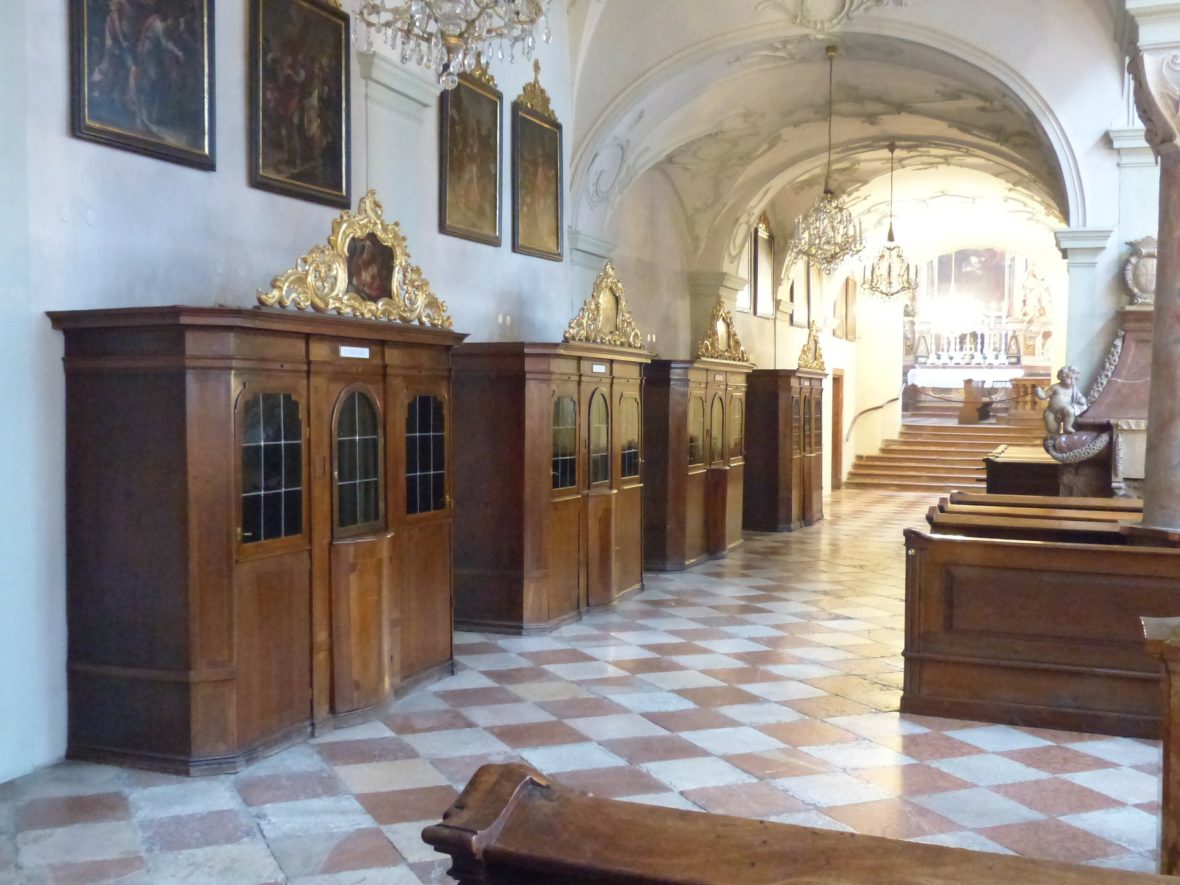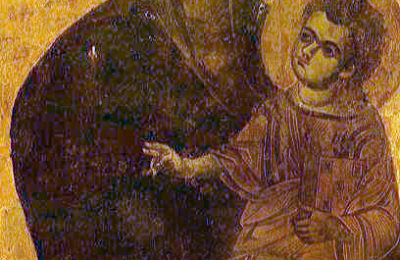“When a man really tells the truth, the first truth he tells is that he himself is a liar.”
―
If you walk into an old Roman Catholic Church, you will see large wooden structures that look like upright boxes, known as confessionals. In such confessionals, generations of our Catholic ancestors have faced the truth about themselves, and confessed their sins to their priest. Somewhere in the throes of the Church revolution in the 1960s, it became de rigueur to downplay the presence of these, what I would call, boxes of life, and declare to Catholic school children that they were ok just as they are, no one goes to hell, and the new church doesn’t want to emphasize sin, and all that stuff that leads to low self-esteem.
This mode of thinking has been, literally, a disaster.
Man does not change, and the first thing he learns about himself as he matures, is that he possesses the effects of original, and has the potential to, and often participates in, actual sin.
Modern Catholic education, which downplayed sin, was erroneous, and spiritually harmful. The problem of sin, instead of disappearing, as the innovators might have thought, has grown larger, like an elephant in the room, for the people no longer have had access to, or knowledge of, one of the greatest gifts given to us by Our Lord Jesus Christ in which to handle our sin, and tendencies to sin: the grand, delightful, happy, sacrament of Confession.
Once you take a trip into this other world of forgiveness and love, you will never be the same. Contrary to the mantra of the innovators, acknowledging ones faults and failures, instead of causing a person to become bound up and neurotic, sets free. I often think that the rise in addictions, drug dependency, etc., is occurring, because the confessional has been closed off to man via the recent erroneous teachings, and the sinner cannot obtain that much needed forgiveness, and grace, to improve; that which is imparted in the box of life. Chesterton noted this, which is interesting, especially as he died quite a while ago, in 1936, not knowing what the last fifty years would wrought, he said:
“Psychoanalysis is confession without absolution.”
Moreover, G.K. Chesterton said through his detective-priest, Fr. Brown:
“No man’s really any good till he knows how bad he is, or might be; till he’s realised exactly how much right he has to all this snobbery, and sneering, and talking about ‘criminals,’ as if they were apes in a forest ten thousand miles away; till he’s got rid of all the dirty self-deception of talking about low types and deficient skulls; till he’s squeezed out of his soul the last drop of the oil of the Pharisees; till his only hope is somehow or other to have captured one criminal, and kept him safe and sane under his own hat.”
―
Last night, I sat about with two Catholic women, and this topic came up: we discussed sin, forgiveness, the Church, our view of sin, sinners, criminals, and agreed that Our Lord forgives all sinners; not the sinners we like, or those we think should be forgiven based on some idea we have of what is forgivable; and I remembered that Chesterton had something to say about that. He said that priests do not have the luxury of forgiving what we deem is forgivable, but in that box of life, hand out this mysterious Christian forgiveness to all sorts of sinners, even the sinner under our own hats. Chesterton said, again, through his character of Fr. Brown, regarding the priest in the darkness of the confessional:
“We (meaning priests, added by SF) have to touch such men, not with a bargepole, but with a benediction,” he said. “We have to say the word that will save them from hell. We alone are left to deliver them from despair when your human charity deserts them. Go on your own primrose path pardoning all your favourite vices and being generous to your fashionable crimes; and leave us in the darkness, vampires of the night, to console those who really need consolation; who do things really indefensible, things that neither the world nor they themselves can defend; and none but a priest will pardon. Leave us with the men who commit the mean and revolting and real crimes; mean as St. Peter when the cock crew, and yet the dawn came.”
―
Chesterton brought up the topic, again, in another episode with Fr. Brown:
“There is a limit to human charity,” said Lady Outram, trembling all over.
“There is,” said Father Brown dryly, “and that is the real difference between human charity and Christian charity. You must forgive me if I was not altogether crushed by your contempt for my uncharitableness today; or by the lectures you read me about pardon for every sinner. For it seems to me that you only pardon the sins that you don’t really think sinful. You only forgive criminals when they commit what you don’t regard as crimes, but rather as conventions. So you tolerate a conventional duel, just as you tolerate a conventional divorce. You forgive because there isn’t anything to be forgiven.”
―
Thankfully we are seeing a return to the love of the sacrament of Confession. The last fifty years of downplaying the large elephant of sin have wreaked havoc, and the common Catholic man, loaded with common sense, knows he needs the remedy of the box of life where, as G.K. Chesterton said:
“When a Catholic comes from confession, he does truly, by definition, step out into that dawn of his own beginning… in that brief ritual God has really remade him in His own image. He may be grey and gouty; but he is only five minutes old.”
That is beautiful.
•On a practical note: many Catholics were not instructed on Confession, but do not let that deter you from entering the box. Here is a brief primer on the steps involved in Confession: link. Here is a sample confession: link. Priests are very kind in the confessional (as noted above), and will not fault any effort you make in this sacrament. If you find yourself afraid of the sacrament, I linked, at the end of this post, to an excellent talk by Fr. Hugh Thwaites on the sacrament of Confession, which allays fears: link. But, alas, you might still experience a bit of fear as your feet lead you closer to the wooden door of that life giving chamber, but do not draw back, move onward as a member of the Church Militant, fighting, as it were, for the health of your immortal soul. Our Catholic ancestors confessed, therefore we confess.
♥ On another practical note: we wish a very happy birthday to the beloved CFW, graphic designer, and one of the first readers of The Marian Room. On this grand occasion, we do declare, that about her there has always been a golden glow of love, and she does honor to the name of Christian womanhood. CFW, long may you reign as queen of your home, queen of your family, and queen of our hearts!
May you all have a beautiful day.
•SCF





